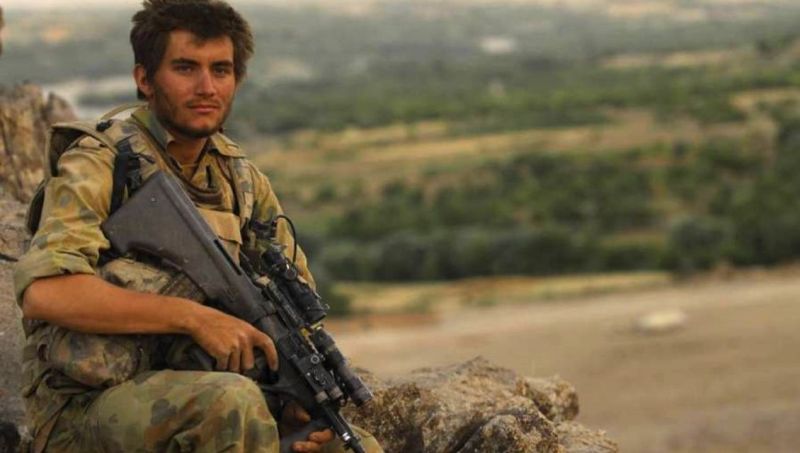May 2025
Making a difference for veterans in our prison system
While Chris Tilley was serving his country overseas as a member of the Australian Defence Force (ADF), he lived by a simple motto: Look after the guy next to you.
When the former Lucindale farm boy found himself in places as far away as Timor-Leste and Afghanistan, he used this motto to cut through the politics and chaos – look after the guy next to you and have faith that he’s looking out for you.
Now, as the Senior Advisor for Veterans Services at the Department for Correctional Services, Mr Tilley is still looking out for fellow veterans, and the work he does is making a tangible and lasting impact within the state’s prisons.
“I joined the army in 2004 as an infantry soldier and was posted to my unit of choice, the 3rd Battalion, Royal Australian Regiment,” Mr Tilley said.
“For those who aren’t familiar with military terms, infantry is what most think of as the standard ground-pounding soldier, and the 3rd Battalion was Australia’s paratrooper unit.
“Why did I join? Well, I had a disciplined upbringing, enjoyed the outdoors and was an Air Force Cadet for a number of years.
“I remember my mother would say to me, ‘You know you can be anything you want’, and that was really difficult for me. What 17-year-old kid is really passionate about being a plumber?
“I thought, there’s no job I’m really passionate about, but I am disciplined and love the military, so let’s do the responsible thing and join the Army.”
It was a decision that would have a major impact on Mr Tilley’s life, and as a 20-year-old he found himself on the ground in Timor-Leste, a country still finding its feet after a chaotic and violent separation from Indonesia a few years earlier.
“I have a distinct memory of being woken up in the dark hours one morning and my Section Commander goes, ‘Chris, do you want to go to Timor?’, and I was like, ‘Yep. All right, let’s go’,” he said.
“I got up, packed my stuff, and it was ‘bang, let’s rock and roll’. We had a very short time for training, equipment preparation and cultural familiarisation, and then we were in country. That was part of being in a Parachute Battalion, you might need to be anywhere in the world within 48 hours.”
Mr Tilley arrived to a sky black with smoke from the civil unrest, and found himself working to stabilise the country in two separate deployments (2006 and 2007) by quelling riots and preventing the transportation of weapons to keep a fragile peace until things settled into assistance with democratic elections.
Timor-Leste, however, was relatively quiet in comparison to Mr Tilley’s next deployment to Afghanistan in 2008.
“It’s really tough to talk about Afghanistan because I think everyone’s experience there was very different,” he said.
“And that only gets tougher when you come home and drift apart from those you served with, so I can really only speak on behalf of myself.
“I spent a lot of time with the interpreters, the locals and the kids, trying to understand the culture, trying to understand why people want to kill us, and I think that was really helpful. You can go mad trying to understand the politics and justification of war, but at least you can understand the people involved.
“As challenging as trying to understand everything that was happening over there was, for me there was a peace in knowing that all I really had to worry about were three things: Where I put my foot on my next step, where I was going to jump when a shot rang out and looking after my mates.
“Everything else, all the mess, all the bulls…, it was secondary. A soldier can find peace in that.”
After eight years in the ADF as a Private in the 3rd Battalion Royal, Australian Regiment and as a member of Australia’s Federation Guard, where he was awarded a Soldier’s Medallion for exemplary service, Mr Tilley transitioned into his civilian career as a Correctional Officer at Mobilong Prison near Murray Bridge.
It didn’t take long for him to realise that some of the inmates he was now looking after also had military backgrounds.
He undertook research to understand the number of veterans in the South Australian prison population, and from this research he recognised a need for coordinated support for veteran prisoners, which led to the establishment of a Veteran’s Support Group at Mobilong Prison.
This group commenced as a peer support group but evolved to provide a link to services for specific needs such as emergency housing, careers, legal support, family support, DVA claims and advocacy.
The successful program is now run throughout each of the state’s prisons and in community for post-prison release onto community orders such as bail, parole or home detention.
Its primary focus is to give veteran prisoners the best opportunity to maintain the values associated with being a veteran, thereby assisting with their reintegration into the broader community.
The initiative provides rehabilitation opportunities for ex-military prisoners and their families, supports veteran staff, provides links to support services and encourages the readoption of the service identity, values and community.
Mr Tilley says there have been many success stories, including a veteran who was described as “one of the most dangerous prisoners we’ve ever had”, who had attempted to self-harm in prison, and now credits his survival to a Correctional Officer who went out of their way to check on his welfare and intervened.
“This veteran had undiagnosed issues from his service and very little support, and when he got out of prison, he became homeless,” he said.
“This was before Corrections formally established our program, so the Support Group, Open Arms and Andrew Russell Veteran Living all wrapped around him, and four years later he has become incredibly successful, owns several houses and is starting his own business.
“He actually came back into Corrections and was helping me train Correctional Officers.
“He credits his survival to the Correctional Officers who believed in him and gave him that little bit of extra attention and said, ‘Hey, are you okay?’”
With Anzac Day approaching, Mr Tilley says it’s the perfect time for Australians to show solidarity with those who have served their country.
However, he says it’s not necessarily just a solemn affair.
“I catch up with one of my mates who I served with almost every year on Anzac Day,” Mr Tilley said.
“And I think that’s what it’s about, connection. Each person is different and everyone’s service was different, but we’re all still there for each other.
“For me, Remembrance Day is a time for solemn reflection, whereas Anzac Day is more of a celebration of togetherness and acknowledgement that we’re all on the same team.”
This article was originally published by We Are SA and is shared here with permission.




